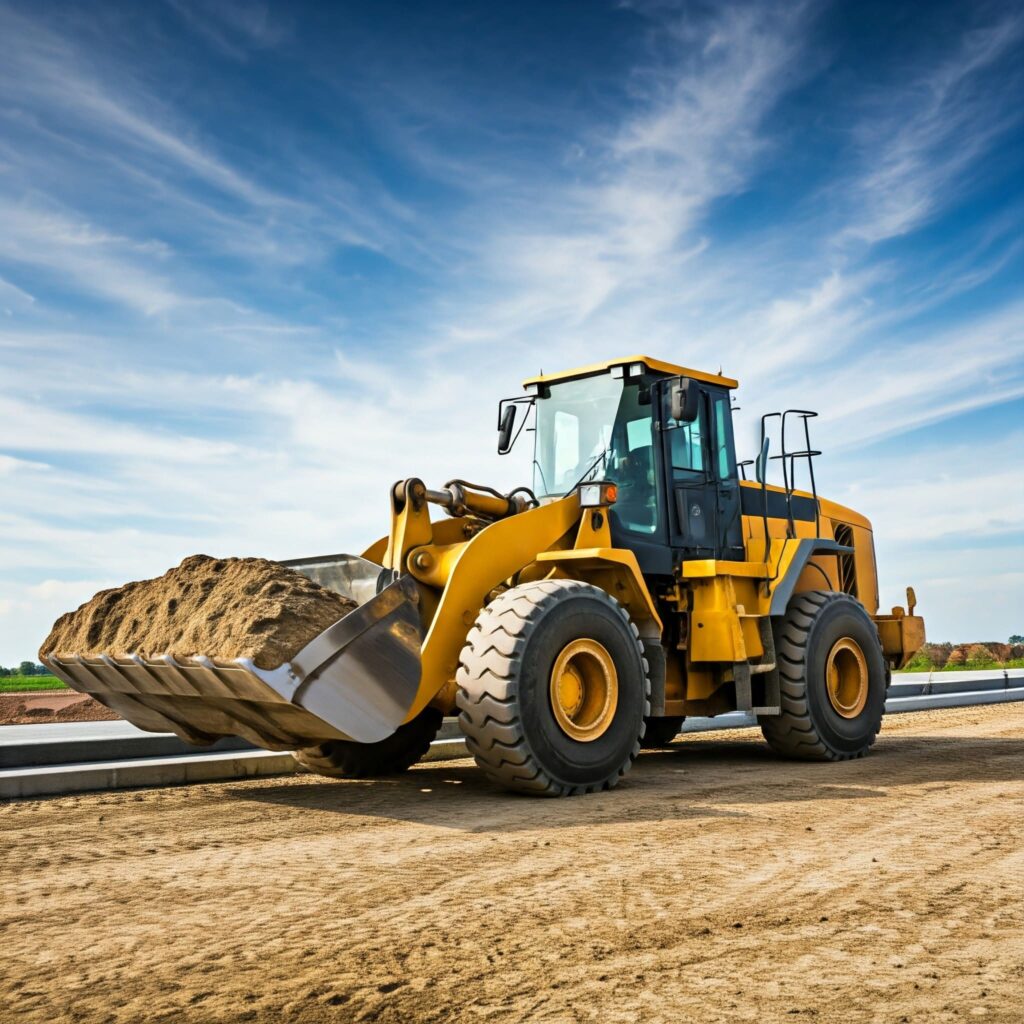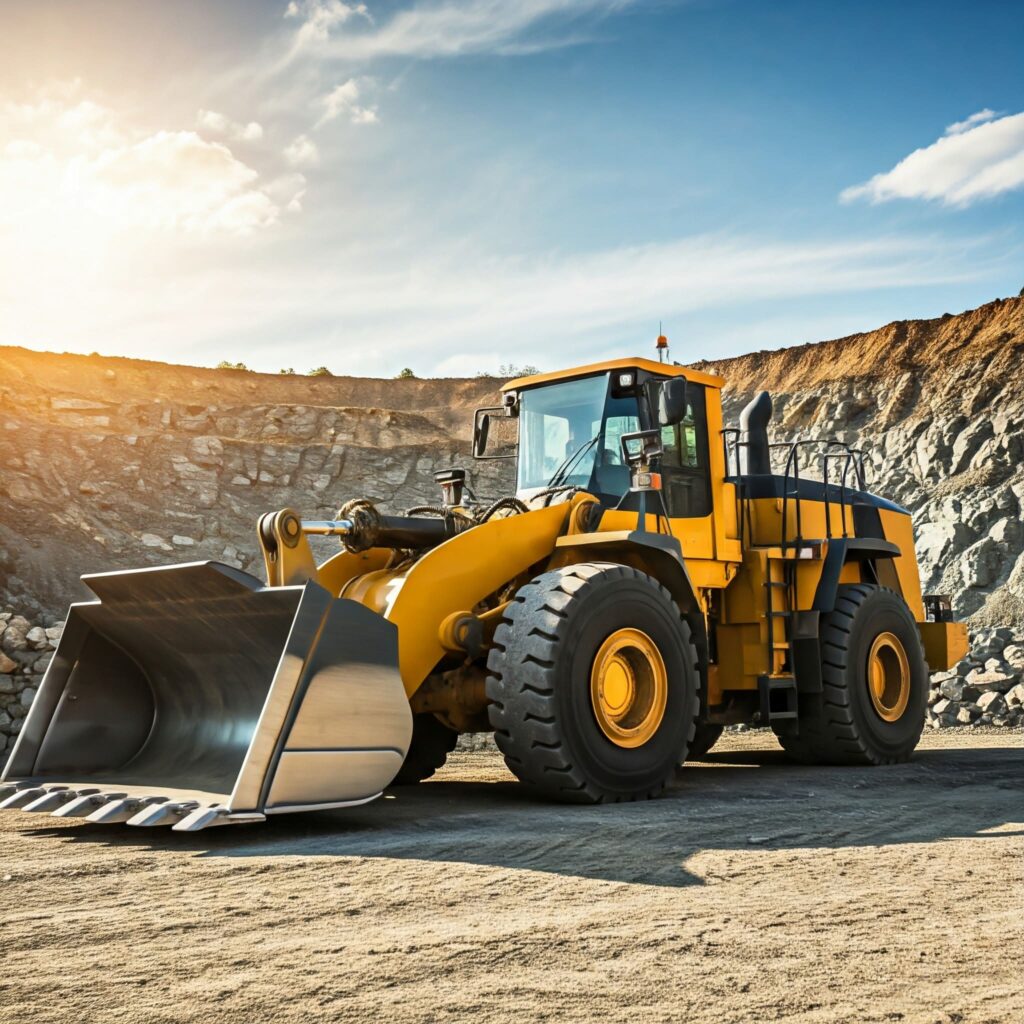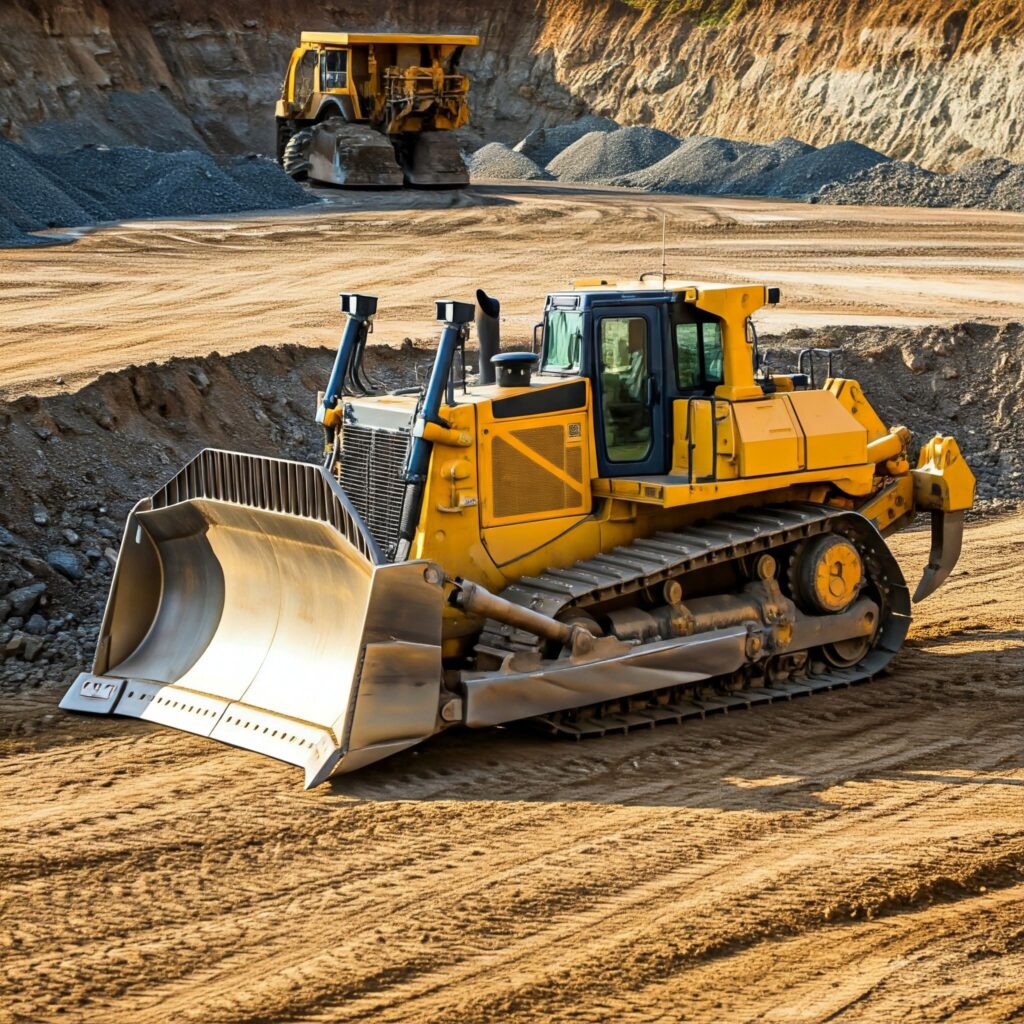Loader pins experience some of the most intense operating conditions in heavy machinery, including extreme pressures, repeated movements, and exposure to dust, water, and contaminants. A well-chosen grease significantly reduces wear, lowers maintenance costs, and extends the working life of critical components.
This comparison examines top-performing greases in the industry—Valvoline Full Synthetic Moly-Fortified Grease, Mobilgrease 320 Moly Series, and AMSOIL NLGI 2 Off-Road Synthetic Grease. The emphasis is placed on factual, unbiased technical analysis aimed at helping professionals evaluate which option suits their needs.
Understanding the Role of Molybdenum Disulfide (Moly) in Heavy Equipment Grease
Molybdenum disulfide (commonly referred to as “Moly”) is a vital additive in many heavy-duty greases, especially for equipment operating under extreme pressures. Its properties significantly enhance performance in demanding applications, making it a preferred choice for loader pins.
Key Functions of Moly:
- Extreme Pressure (EP) Lubrication:
- Forms a thin but robust film on metal surfaces, acting as a solid lubricant.
- Prevents scuffing or welding of metal surfaces, which can occur if the lubricant film breaks under high stress or shock loads.
- Protects against metal-to-metal contact, minimizing wear during peak load conditions.
- Improved Load-Carrying Capacity:
- Strengthens the grease’s ability to manage heavy loads without failure.
- Especially beneficial for bearings, loader pins, and other heavily loaded components.
- Reduced Friction and Wear:
- Lowers operating temperatures by reducing friction between moving parts.
- Extends component lifespan and improves machinery efficiency.
- Corrosion Resistance:
- Provides some level of protection against moisture, contaminants, and environmental factors that lead to corrosion or rust.
Why 5% Moly?
5% Moly is commonly used in grease for heavy equipment as it strikes an optimal balance between improved performance and versatility. However, different applications may require varying concentrations depending on operating conditions and component demands.
Moly-enhanced greases contribute to reliability and uptime, which are essential for applications in mining, construction, and other heavy industries.
Comparing Industry-Leading Greases for Loader Pins
Employing technical analysis, the greases below are evaluated for their performance under extreme conditions, focusing on load capacity, extreme pressure resistance, and other key factors.

1. Valvoline Full Synthetic Moly-Fortified Grease
- Composition: Synthetic base oil with Moly and other performance-enhancing additives.
- Moly Content: Moly-fortified (content unspecified but optimized for performance.)
- Key Performance Features:
- Performs across a broad temperature range, from -40°F to 400°F.
- Provides high-performance lubrication in heavy-load scenarios.
- Best Use Cases:
Excellent for professionals requiring grease capable of enduring extreme temperature variations, particularly in automotive and medium-duty machinery applications.
2. Mobilgrease 320 Moly Series
- Composition: Premium highly refined mineral oil with lithium soap thickener and 3% Moly.
- Moly Content: 3% Moly for added load-handling capacity.
- Key Performance Features:
- Contains extreme pressure (EP) additives to handle heavily loaded equipment.
- Enhanced rust and oxidation protection increases service reliability.
- Provides cost-effective lubrication for applications needing regular maintenance.
- Best Use Cases:
Recommended for mining, construction, and scenarios requiring frequent re-greasing, offering a balance of performance and affordability.
3. AMSOIL NLGI 2 Off-Road Synthetic Grease
- Composition: 100% synthetic polymeric grease with 5% Molybdenum Disulfide for maximum protection.
- Moly Content: 5%, ensuring superior handling of extreme pressure and shock loads.
- Key Performance Features:
- Exceeds high industry standards, including Caterpillar specifications, with excellent Timken OK load and four-ball wear results.
- Outstanding adhesion and cohesion prevent grease ejection, even under intense impact or vibration.
- Superior water washout resistance maintains integrity in wet and contaminated environments.
- Best Use Cases:
Ideal for extreme-duty applications requiring maximum load capacity, extended service intervals, and resilience under harsh operating conditions.
Technical Comparison Table
| Feature | Valvoline Full Synthetic | Mobilgrease 320 Moly Series | AMSOIL NLGI 2 Off-Road Synthetic |
| Base Composition | Synthetic | Refined Mineral Oil | 100% Synthetic Polymeric |
| Moly Content | Moly-Fortified | 3% | 5% |
| Temperature Range | -40°F to 400°F | Moderate | -40°F to 325°F |
| Extreme Pressure (EP) | High | High | Superior |
| Water Washout Resistance | Good | Moderate | Exceptional |
| Adhesion & Cohesion | Moderate | Moderate | Exceptional |
| Corrosion Protection | Good | Strong | Excellent |
| Best For | Automotive and medium-duty applications | High-maintenance scenarios, heavy-duty | Extreme-duty, high-pressure environments |
Practical Considerations for Professionals
- Environmental Conditions:
Wet or contaminated environments necessitate a grease with high water washout resistance, such as AMSOIL’s NLGI 2 or Mobilgrease 320. - Frequency of Maintenance:
If equipment requires frequent re-greasing, Mobilgrease 320 may present a cost-effective option. For applications where extended service intervals are preferred, AMSOIL’s high-performance synthetic grease is advantageous. - Temperature Variability:
For equipment operating in extreme hot or cold climates, Valvoline’s Full Synthetic grease offers unmatched versatility across a wide temperature range. - Load Resistance Needs:
Components with intense pressure demands, such as loader pins, benefit most from greases with higher Moly concentrations, like AMSOIL’s 5% formula.

FAQs: Addressing Common Questions
1. Why is Moly crucial for heavy-duty applications?
Moly enhances a grease’s performance under extreme pressure by creating a solid protective layer that reduces wear, improves load capacity, and minimizes friction.
2. What’s the difference between 3% and 5% Moly greases?
While both provide extreme pressure lubrication, 5% Moly offers enhanced protection for the most demanding conditions, such as shock loads and extreme temperatures.
3. Can synthetic greases replace mineral-based ones?
Yes, synthetic greases like AMSOIL offer superior performance, including better temperature stability, longer service intervals, and higher resistance to environmental factors.
4. Is cost a deciding factor when choosing grease?
Choosing a higher-performing grease often results in long-term savings by reducing wear, minimizing downtime, and extending maintenance intervals.
Final Considerations
Analyzing performance metrics such as load resistance, Moly content, and environmental adaptability ensures that professionals can match their grease of choice to their operational requirements. Each product—Valvoline, Mobilgrease, and AMSOIL—has distinct strengths, making them valuable options depending on the specific needs of your equipment. Prioritize technical performance and application-specific requirements for the best results in loader pin lubrication. For detailed insights on grease application, frequency, and heavy equipment maintenance, refer to DOZR’s Machine Grease 101 guide. It covers practical tips and best practices to keep your machinery running smoothly.
